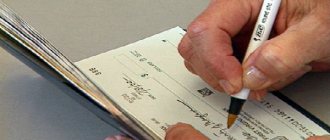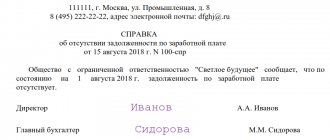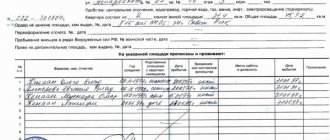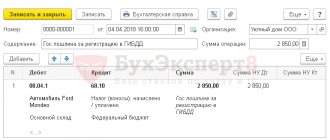Similar legal disputes regarding payment for utilities and housing may be resolved differently by the courts. To eliminate confusion and ensure uniform judicial practice, the Plenum of the Supreme Court of the Russian Federation published Resolution No. 22.
In its ruling, the Supreme Court of the Russian Federation outlined how courts should approach resolving such disputes.
How courts resolve disputes about common property in apartment buildings
What issues were considered by the RF Armed Forces
In Resolution No. 22 you will find conclusions about:
- how procedural issues are resolved,
- what constitutes the structure of payments for residential premises and utilities,
- How is the payment procedure determined?
- what social support measures exist.
The Supreme Court of the Russian Federation recalled that the provision of corporate debt can be suspended or limited only after a written warning to the debtor. Debt itself is not considered grounds for suspension of the Civil Code.
The question often arises of which court to go to to resolve disputes regarding payment for housing and utilities. Such disputes are considered by magistrates' courts and courts of general jurisdiction in civil proceedings.
Such disputes have a statute of limitations of three years. The period begins to be calculated from the day when the person learned or should have known:
- about violation of your right;
- about who is the defendant in the claim.
If the court is asked to recalculate payments, then the fact of failure to provide or improper provision of payment services is confirmed by:
- an act of violation of quality or exceeding the established duration of a break in the provision of services;
- the act of failure to provide or provision of public services of inadequate quality;
- other means of proof provided for in Art. 55 Code of Civil Procedure of the Russian Federation.
Acts are drawn up by the contractor of public services, and other means of proof under Art. 55 of the Code of Civil Procedure of the Russian Federation includes, for example, testimony of witnesses, audio recordings, video recordings and expert opinions.
The Supreme Court of the Russian Federation explained in what cases subsidies are and are not provided to pay for housing and utilities.
For example, the subsidy is not available to residential subtenants and temporary residents. Because they do not acquire independent rights to use residential premises.
The subsidy cannot be refused if there is a good reason for the debt. This reason could be:
- failure to pay wages on time,
- difficult financial situation due to job loss and inability to find employment,
- disease,
- hospital treatment of the debtor or his family members,
- presence of disabled people or minor children in the family.
How to resolve obstacles in the use of common property
Important points when filing a claim for debt collection for housing and communal services
In order to solve the problem of how to collect utility debts, it is important for an organization to approach the preparation of a claim correctly.
In particular, it must indicate:
- Amount of debt broken down by period
- Data on payments received from the defendant
- The amount of accrued pennies for violation of payment terms for utility services
Based on the total amount of claims, the state duty is calculated.
The claim is accompanied by a reasonable calculation of the debt for housing and communal services, as well as other evidence confirming the existence of the debt. These may include a claim and pre-trial correspondence with the recipient of utility services.
It is imperative to take into account that the period for collecting debts on utility bills is 3 years, which is within the general limitation periods. It may well be that some of the amounts have already expired. Therefore, this circumstance must not be forgotten during the upcoming trial.
As soon as the decision on the claim comes into force, a writ of execution should be obtained for utility debts.
It is handed over to the bailiffs, who will collect the awarded amounts from the income or property of the debtor.
Procedural issues
In order to correctly determine the court to which to file a claim for payment of utilities for a residential premises, you need to carefully study the rules established by Art. Art. 23 and 24 Code of Civil Procedure of the Russian Federation.
For example, claims are filed with the magistrate's court for recalculation of fees in connection with the provision of poor quality services. In this case, the cost of the claim does not exceed 50,000 rubles.
They come to the district court with claims to determine the procedure for paying for housing and utilities. Because such claims are not subject to assessment.
As a rule, demands for collection of debts for payment of residential premises and utilities are considered at the defendant’s place of residence (Article 28 of the Code of Civil Procedure of the Russian Federation). Claims can also be brought to court:
- at the place of residence or place of stay of the plaintiff,
- at the place of conclusion or place of execution of the contract (Part 7 of Article 29 of the Code of Civil Procedure of the Russian Federation).
At what amount of debt for utilities do they go to court?
The amount of debt is understood as non-payment that meets the criteria of clause 118 of the Rules approved by Resolution No. 354 of 05/06/2011:
- not paid by the payer for two months, calculated according to the utility consumption standard, regardless of the presence or absence of an individual meter;
- an agreement on installment repayment of the debt has not been concluded with the debtor or its terms have been violated.
To determine the amount of debt, only the utility consumption standard approved by local authorities for each type separately is used. The consumer will be considered a debtor if his non-payment of his bills is more than double the standard.
Depending on the size of the debt, it can be collected by the court through an order or claim:
- The procedure for writ proceedings applies to amounts of municipal debt not exceeding 500 thousand rubles. Then the interested person applies to the magistrate at the place of residence of the defendant (debtor) to issue a court order.
- Claim proceedings arise against a debtor with an amount of more than 500 thousand rubles. The same procedure applies to those who have a lower debt, but have filed an objection to the court order.
On the maintenance of common property
The Supreme Court of the Russian Federation reminds that when resolving disputes related to payment for common property in MKD, it is important to remember that only property that meets the criteria from Art. 36 of the Housing Code of the Russian Federation and from paragraph 1 of Art. 290 Civil Code of the Russian Federation.
You also need to understand that the amount of payment for the maintenance and current repairs of common property in an apartment building approved by the OSS cannot be set arbitrarily. The amount of the fee must be set so as to ensure the maintenance of common property in accordance with the requirements of Part 1 of Art. 156 Housing Code of the Russian Federation.
The management organization cannot unilaterally change the procedure for determining the amount of payment for the maintenance of residential premises. Nor can it charge a fee for the maintenance of residential premises in an amount exceeding the amount of such payment under the management agreement (Part 7 of Article 156, Parts 1, 2, 3 and 8 of Article 162 of the Housing Code of the Russian Federation, Clause 1 of Art. 310, paragraph 1, article 432, article 450–453 of the Civil Code of the Russian Federation).
How to avoid administrative liability in the management of apartment buildings
About deliberately incorrect interpretation of legal norms
Fraudulent structures operating in the housing and communal services sector try to give their own illiterate interpretation to some rules of law containing uncertainty. Thus, the phrase contained in the Housing Code of the Russian Federation regarding payment for services until the 10th and about the obligation to pay for utilities is elevated to an absolute. But the link to Part 1 of Art. 153 of the RF Housing Code does not replace a management agreement concluded in the manner prescribed by Art. 162 Housing Code of the Russian Federation. And the resulting conflict of legal norms is easily eliminated by referring to the basic principles of housing and civil legislation:
- according to clause 1 of Article 10 of the Housing Code of the Russian Federation, housing rights and obligations arise “from contracts and other transactions provided for by federal law”;
-according to paragraph 1 of Article 8 of the Civil Code of the Russian Federation, civil obligations arise from contracts.
About charging
Many questions arise with the payment of utilities and housing by tenants. If the tenant does not have a written social rental agreement for residential premises, he must still pay for residential premises and utilities (Clause 1, Part 2, Article 153 of the Housing Code of the Russian Federation).
Not only the tenant must pay the fee, but also his family members living with him, who have an equal right to residential premises with the tenant (Clause 5, Part 3, Article 67, Parts 2, 3, Article 69 and Article 153 of the Housing Code of the Russian Federation) .
They are also jointly and severally liable for failure to pay for housing and utilities.
If a former family member of the tenant retains the right to use the residential premises, he is independently responsible for paying for the residential premises and utilities. But only if he has concluded an agreement with the management organization and the employer defining the procedure and amount of his participation in expenses (Part 4, Article 69 of the RF LC, Article 421 of the RF Civil Code).
If there is no such agreement, the court determines the amount of payment expenses of the former family member of the tenant based on his share of the total area of the entire residential premises. The calculation takes into account the number of persons who have the right to use this residential premises (Article 249 of the Civil Code of the Russian Federation).
The management organization has the obligation to enter into an agreement with the former family member of the tenant and issue him a separate payment document to pay for housing and utilities.
There are problems with minor owners. The responsibility to pay for housing and utilities lies with the parents of this minor, regardless of whether they live with him or not (Articles 21, 26, 28 of the Civil Code of the Russian Federation and Articles 56, 60, 64 of the RF IC).
Minors from 14 to 18 years old can pay for their own housing and utilities. But if they do not have enough funds, then this duty is subsidized by his parents (Article 26 of the Civil Code of the Russian Federation).
The Supreme Court of the Russian Federation recalled that payments for residential premises and utilities are paid on the basis of receipts, including electronic receipts in the State Information System for Housing and Communal Services (Clause 9, Article 2, Part 2, Article 155 of the Housing Code of the Russian Federation).
It is impossible to oblige the consumer to receive payment documents only on paper or only in electronic form.
How a management company can defend its license in court
The Housing Code provides for the procedure for collecting debt on utility bills:
- Accrual of penalties.
Residents who evade paying receipts sent by the management company or HOA will have to pay fines.The penalty is calculated as specified in clause 14 of Art. 155 of the Housing Code and clause 159 of the rules for the provision of utility services to owners and users of premises (hereinafter referred to as the “Rules”).
It is illegal to charge a higher penalty.
- Services will be provided to a limited extent or suspended.
If you don’t want to be left without water or electricity, then don’t go into arrears in paying for utilities.Algorithm of actions to limit or suspend services:
- 20 days before restrictive actions must be sent a written warning - sub. and clause 119 of the Rules. The warning is handed to the recipient against signature, or a registered letter is sent with notification;
if the debt for housing and communal services is not repaid within the allotted time, then the contractor temporarily provides the service with restrictions, if this is technically possible;
- services are suspended if the debtor has not made payment within 30 days. Exception: heating or cold water supply in apartment buildings. In this case, they must notify in writing in accordance with paragraphs three days in advance. in paragraph 119 of the Rules.
- If the debt for housing and communal services is paid, then the service begins to be provided again within 2 calendar days.
- Applying to court to collect debt.
Collecting utility debt through the court is a measure that should encourage consumers to pay debts.
The statement of claim is filed by a representative organization on behalf of the HOA or management company.
The court makes a decision on the collection of utility debts.
A writ of execution is issued to pay utility bills. It is the basis for debt collection.
The Law on Enforcement Proceedings provides for the following measures:
- Foreclose on wages and other income;
- If you have accumulated more than 10 thousand in debt, then leaving the country is limited for some time.
If you don’t pay for utilities, you can be evicted from your home.
According to the Housing Code (Article 90), an apartment can be evicted if:
- the employer does not pay for utilities for more than 6 months;
What are these good reasons? The High Court explained that these include: delay in salary, loss of ability to work, disability (Resolution No. 14 of July 2, 2009). People can be evicted from their home only through the courts. They can't throw you out onto the street. The Supreme Court explained that the decision must explain to which premises non-paying service providers are evicted.
About recalculation for the period of temporary absence
Temporary non-use of the premises is not a reason to exempt the tenant or owner from paying:
- maintenance of living quarters,
- hiring,
- heating,
- utilities on one street,
- contributions for major repairs.
In case of temporary absence of the tenant, owner or members of their families, the payment for utility services is recalculated (Part 11, Article 155 of the Housing Code of the Russian Federation).
Recalculation is made on the basis of an application submitted by the employer, owner or members of their families. Missing the deadline for filing an application for a valid reason is not grounds for refusing to satisfy requests for recalculation.







